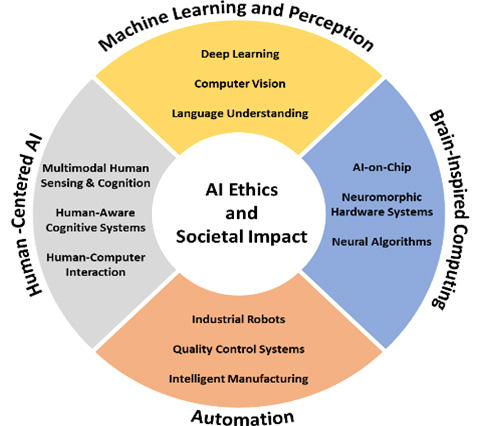Center for Human-aware AI (CHAI)
From the Director

The past year has been one of growth for CHAI, with several new faculty joining and a record number of new projects.
Our center creates an environment for faculty collaboration in both AI fundamentals and applications. With a focus on human-aware AI, CHAI faculty are in a unique position to address emerging issues when AI is deployed in practice. The AI potential for innovation and scholarship is sure to benefit our faculty’s research and enhance the student experiences.
I would like to thank our center faculty and their students for all their contributions. Without them CHAI would not be what it is today. I am also grateful to Dr. Ryne Raffaelle, Vice President for Research, Dr. Prabu David, Provost and Senior Vice President for Academic Affairs, and Dr. William H. Sanders, RIT President, for their continued support and encouragement. Finally, I want to thank our many collaborators from government and industry that make our research relevant and put it to good use. I look forward to working with all of you to advance AI with a human touch at RIT.
Cecilia Alm
CHAI Director
Professor
About the Center
To improve the quality of human life with breakthrough research in AI and to comprehensively equip future AI practitioners and scientists.
The CHAI mission is to:
- Conduct transformative research on computing systems capable of tasks that ordinarily require human intelligence or enable humans to perform effectively.
- Work toward the development of AI systems that are continually learning, trustworthy, and capable of solving complex tasks with minimal resources.
CHAI’s goal is to propel RIT forward in the following ways:
- Advance research in AI
- Grow AI research output and investment at scale
- Attract top-tier faculty and graduate students in AI
- Increase collaboration within RIT
- Position RIT to participate in AI’s Grand Challenges
Machine Learning and Perception
How can we extend and transform AI methods to address challenging tasks in understanding natural language, images, video, and multi-modal data?
Human-Centered AI
How can we develop and design usable AI-based cognitive technologies for interacting with human users, including understanding behavior, experiences, and negotiating users’ trust?
Automation
How can AI technologies lead to new innovations and efficiencies in domains where intelligent systems or robots collaborate in future workplaces?
Brain-Inspired Computing
Can our understanding of human neural processing and perception lead to new AI algorithms and hardware advances?

